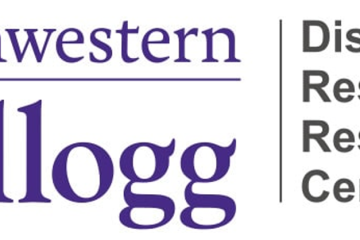IACM VSS: The Consequence of Listening: Practitioners’ Views, Theories, Meta-Analyses, and a Research Agenda with Avi Kluger

IACM Virtual Seminar Speaker: A Monthly Series on Conflict and Negotiation Research
The Consequence of Listening: Practitioners’ Views, Theories, Meta-Analyses, and a Research Agenda
Avraham (Avi) N. Kluger
Hebrew University Business School (HUBS)
Jerusalem, Israel
Click Here to Register for the Session
Moderator: Selin Kesebir
Using “Schedule 1”
45 minutes
Monday, November 7th
Schedule 1:
8 AM US Pacific
11 AM US Eastern
5 PM Amsterdam
12 midnight (next day) Singapore
3 AM (next day) Melbourne
Abstract: People spend a lot of their time listening to other people. Surprisingly, the consequences of the quality of people’s listening received relatively little academic attention, and it is scattered across many disciplines. Accordingly, it is hard to gauge the existing knowledge. Therefore, in this talk, I will offer a bird’s eye view of practitioners’ writing, theories, and meta-analyses about listening and conclude with a research agenda. Practitioners pointed out that high-quality listening produces desirable outcomes in careers, marriage, parenting, negotiation, medicine, psychiatric treatment, and consulting. Theories suggest that listening affects the speaker’s speech quality, self-knowledge, personality development, change, and political shifts. Meta-analyses suggest that the effect sizes of listening are as strong and even stronger than typical effect sizes in a given field. For example, listening seems to have a stronger effect on reducing depression than the best psychiatric drug and be a better predictor of job performance than any personality measure. The practitioner’s view, theories, and data demonstrate that listening could solve many social challenges. Yet, the fact that high-quality listening is not typical begs questions about the causes of poor listening and boundary conditions. These include the costs that good listeners may carry regarding their social status, exposure to second-hand trauma, social rejection by speakers who avoid high-quality listening, and tolerance for change. Moreover, the field is in dire need of reaching a consensus on the definition of the listening construct and establishing divergent validity for existing measures. I will conclude that researching listening poses exciting research questions relevant to all life domains.
Bio: Avraham Natan (Avi) Kluger is the firstborn of parents who survived the Holocaust. He is a professor of Organizational Behavior at the Hebrew University School of Business (HUBS), Jerusalem, Israel. In his research, Prof. Kluger has demonstrated that even positive feedback can be detrimental to performance. This research (with Angelo DeNisi) was recognized in 1996 as the Outstanding Paper in Organizational Behavior by the Academy of Management and received the first William A. Owens Scholarly Achievement Award for the best publication (1996) by the Society for Industrial and Organizational Psychology. Further, his research on feedback sign (with Dina Van-Dijk) received the 2009 Award for Best Competitive Paper by the Organizational Behavior Division of the Academy of Management. Given the dangers of feedback, which he defines as telling others something about their performance or behavior, he became interested in what happens when people choose to listen to others instead. He has developed several listening tools, including the “Feedforward Interview” (with Dina Nir) as a substitute for performance appraisal. This approach was covered in the Chicago Tribute and the Financial Times. He now pursues questions about effective listening academically and as a trainer, teaching people from diverse cultures to listen to one another. His published research has shown that listening reduces attitude extremity (with Guy Itzchakov), but individual differences prevent some speakers from benefiting from listening (with Dotan Castro). He is planning to complete a meta-analytical review of the effects of listening on job outcomes in 2023. For details about this work, see his 2015 TEDx talk, a 2018 publication in the Harvard Business Review, and a 2022 review in the Annual Review of Organizational Psychology and Organizational Behavior.
Prof. Kluger has consulted on statistics, feedback, feedforward, and listening to a multitude of organizations, including USA companies: AT&T (1986-1991); Philips Lighting Company (1992); European companies: SHL (London, Rome, 2007-2010); Ericson (Rome, 2010); Previa (Stockholm, 2014); Achmea (Istanbul, Paris, 2017), Banca Farmafactoring (2020); and Israeli Organizations: The Israeli Police (since 1995), Israel Defense Forces (since 1994), Bank Leumi (1995), SodaStream (2009-2010), Lumus (2018-2019), Siemens (2021), and many more.
He finds his work on listening as a response to the atrocities his family experienced and a contribution to his healing process.


